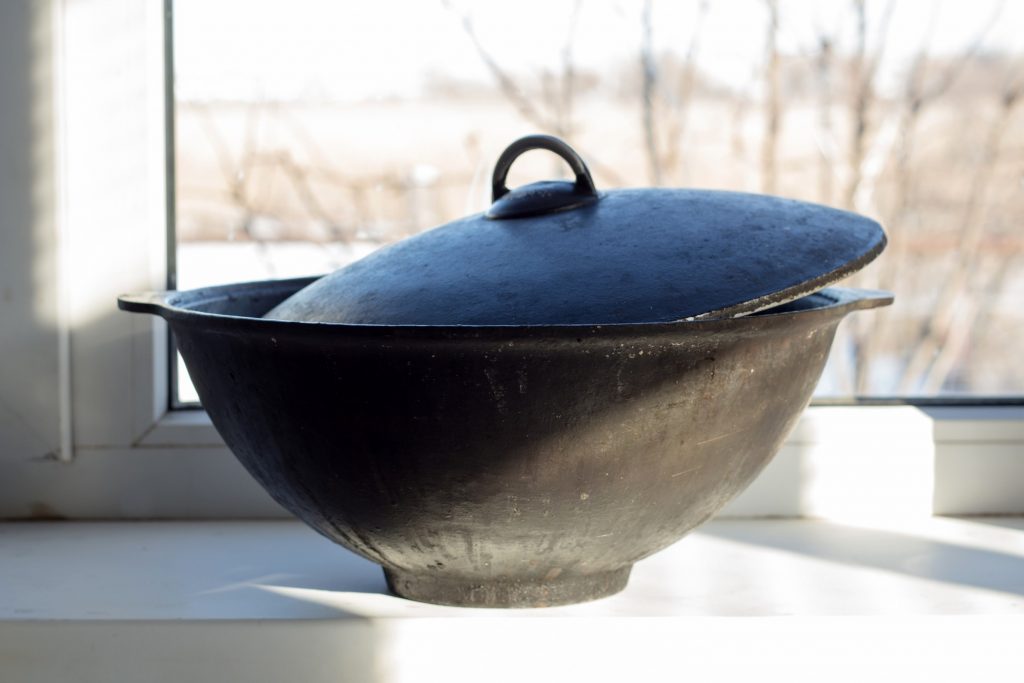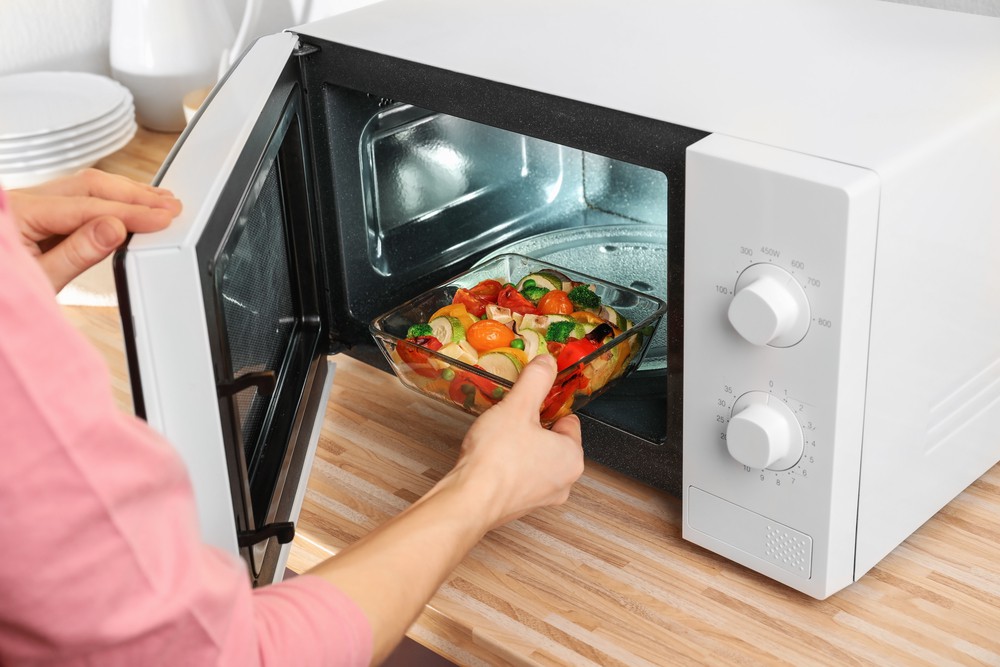If you cook often, chances are you have a favorite type of cookware. For many people, that cookware is cast iron. Cast iron has been used for cooking for centuries for good reasons. Moreover, cast iron cookware is a staple in many kitchens. It’s rust-resistant, non-stick, and holds heat well. Above all, if you’re not using cast iron cookware, you’re missing out.
What is cast iron?
Cast iron is an iron-based metal, usually hefty, and has a significantly even heat distribution. It is often called the “poor man’s steel” because it is affordable and easy to work with. Cast iron is ideal for cooking because it is non-stick and can withstand high temperatures.
It has a long history of being used in many different cultures, and its many benefits are well known. Cast iron cookware is durable, can withstand high temperatures, and is a great choice for cast iron enthusiasts and beginners alike.
Benefits of using Cast Iron Cookware:
1. Cast iron is incredibly durable. It can last for generations if properly cared for.
2. Cast iron is an excellent conductor of heat, so it’s great for cooking at high temperatures.
3. Cast iron is relatively inexpensive compared to other types of cookware.
4. Cast iron is easy to clean and care for if you know how.
5. Cast iron adds a nice flavor to food, especially when frying or baking.
6. Cast iron is great for cooking outdoors because it doesn’t require electricity or gas.
7. Cast iron is eco-friendly since it’s made from recycled materials like scrap metal.
Cast iron is an excellent choice for those who want to cook their food slowly and carefully, as the surface is very smooth. This cookware is also great for those who want to cook various meals, as the cast iron can handle high heat. Cast iron cookware is also a great choice for those who want to use less oil or butter, as the food will not stick to the cast iron.
Reasons Cooking with Cast Iron Cookware is So Special

When you start cooking with cast iron cookware, you’ll quickly realize how useful it can be in the kitchen. Cast iron has been around since the 1600s, and it’s still one of the most popular types of cookware today, largely because it’s very versatile and offers many health benefits to boot. Here are some reasons why cooking with cast iron cookware is so special.
Super Versatile
The versatility of cast iron cookware makes it very special. You can use cast iron cookables to cook on top of the stove, in the oven, or even on a grill! Cleaning up after cooking is also easier because you can just scrub out food using a non-abrasive soap and water. And if that doesn’t do the trick, then throw your pot into the dishwasher.
Affordable, Durable and Lasts for Generations
A cast iron skillet is a great buy for someone who is looking to make an investment in their kitchen. The prices on the market are fair and range anywhere from $30 to $200, depending on how often you plan to use it. They’re also very durable, they last for generations and because they have a lifetime warranty, it’s a no-brainer investment if you plan on cooking every day. These skillets are so versatile that you can use them in almost any recipe without thinking twice.
No Teflon or PTFE
Unlike cookware made from other materials such as Teflon and PTFE, cast iron pans heat slowly and evenly. They are also oven-safe and can go from stovetop to oven without changing temperatures or the pan material’s coating. Iron naturally reacts with the food that’s cooked in it, creating a healthier alternative to the chemical reaction of Teflon and PTFE.
Safe to Use Even When Grilled at High Temperatures
Cast iron cookware can be used to cook just about anything, from meats and vegetables to various types of desserts. As one of the oldest kitchen tools in existence, it remains one of the most versatile for home cooks. On top of that, it does an amazing job cooking at high temperatures, which means it’s perfect for a grilled steak or corn on the cob. It retains heat evenly, so you don’t have to worry about any cold spots on your food like with many other cooking utensils.
Heats Up Quickly
Cast iron cookware heats up quickly, which means you can start cooking your meal before it’s even finished preheating. No more waiting around for things to get heated up. And this heat retention feature works both ways, so once it’s heated up, it’ll stay warm for a long time. It also has natural non-stick qualities that don’t require the use of oil or butter when cooking.
Great Alternative to Non-Stick Pans
Non-stick pans are the most popular cooking vessel on the market but are often coated in chemicals and can lead to damage of other pots and pans. Alternatively, cast iron cookware has a natural non-stick surface and has been used for centuries by cooks all over the world.
Why It Is Important to Keep Your Cast Iron Cookware Seasoned and Clean
Cast iron cookware is a staple in any kitchen, and for a good reason. It is an incredibly durable, efficient, and healthy way to cook your food. Cast iron cookware is also a bit of a pain to keep clean and seasoned. Here are a few tips for keeping your cast iron cookware clean and seasoned:
Before using your cast iron pan, it is important to season it.
Seasoning your Cast Iron Cookware will help prevent the pan from being too cold or too hot and will also help make the pan more non-stick. To season your pan, first heat it up on the stove. Then, add a little oil or cooking spray to the pan and heat it again. Finally, add a layer of food to the pan and cook until it is browned.
Season your cast iron cookware every time. Seasoning coats the metal with a thin layer of oil that helps to inhibit rust and buildup. Seasoning also helps to create a non-stick surface. To season your cookware, heat it over medium-high heat until it’s hot, then add a layer of oil. Use a wooden spoon to spread the oil around the pan. Use a paper towel to wipe off any excess oil.
Cast iron cookware can be a bit challenging to clean. Cast iron is heavy, durable cookware, and it can be hard to clean it thoroughly. Cast iron cookware can also be sensitive to cleaning chemicals, so it is important to use a gentle cleaning method.
6 Easy Steps to Cleaning Your Cast Iron Cookware
Cast iron cookware is a metal, and metal reacts with oils and other food ingredients. Keeping your cast iron cookware clean is key to preventing it from rusting and tarnishing. Clean with a damp cloth and soap. Don’t use harsh chemicals or abrasives; these will damage the metal. Cast iron is not as easy to clean as some other types of cookware but following these steps will help make it easy to keep your cast iron cookware looking good and performing its best.
1. Preheat your oven to 350 degrees before cleaning your cast iron cookware. This will help remove any built-up residue on the cookware.
2. Wipe the cookware’s surface with a clean, dry cloth.
3. If necessary, use a non-abrasive cleaner such as soap and water to clean the cookware’s surface. Rinse the cleaner completely before putting the cookware back in the oven.
4. If the cookware is difficult to clean, try soaking it in hot, soapy water for a few minutes. Wiping it off completely before putting it back in the oven.
5. If the cookware is dirty, you may need to scrub it with a stiff-bristled brush. Ripping it off completely before putting it back in the oven.
6. Dry the cookware completely before storing it.
Major Reasons to Keep your Cast Iron Cookware Clean
- Cast iron is a natural conductor of heat, so it’s important to keep it clean to prevent scorching or sticking.
- Cast iron is also a great conductor of flavor, so keeping it clean will help preserve your food’s flavor.
- Cast iron is a great way to cook your food, but it can be difficult to get it hot enough. Keeping it clean will help to ensure that your food cooks evenly and reaches the desired temperature quickly.
- Cast iron is a great way to cook your food, but it can be not easy to get it out of the pan. Keeping it clean will help to prevent sticking and difficulty removing your food from the pan.
- Cast iron is a great way to cook food, but it can be not easy to clean. Keeping it clean will help to prevent rust and corrosion.
6 Tips for Effectively Maintaining Cast Iron Cookware:

1. Use a non-abrasive soap. Cast-iron cookware is made of iron, which can react with some soaps and cause them to remove the seasoning from the cookware. For best results, use a non-abrasive soap like Dawn or Cascade.
2. Use a scrubbing pad. Cast-iron cookware is also porous, which can absorb dirt and oils. To clean it effectively, use a scrubbing pad to remove the dirt and oils.
3. Use a degreaser. If the cookware is dirty, you can use a degreaser to remove the dirt and oils. Be sure to read the product instructions before using a degreaser, as some degreasers can damage the cookware.
4. Dry the cookware. Once the cookware is clean, dry it off with a towel. This will help prevent the cookware from rusting.
5. Avoid non-stick spray: Non-stick sprays are designed to prevent food from sticking to cookware. However, these sprays contain chemicals that can damage your cast iron cookware. Instead, use oil or butter to prevent food from sticking.
6. Use caution: Cast iron is a heavy metal and can be dangerous if dropped. Be careful when moving or handling your cast iron cookware.
The Best Recipes for Cast Iron Cookware

Many great recipes can be made in a cast iron pan. Some of the most popular include Hash Browns, Grilled Cheese Sandwiches, and Roasted Vegetables. Cast iron is a great choice for dishes that require high temperatures, such as searing steak or frying eggs.
For a hearty breakfast, try making eggs in your cast iron skillet. Add oil or butter to the pan and crack in as many eggs as possible and season with salt and pepper to taste. For extra flavor, you can also add in some chopped veggies like onions, peppers, or spinach.
Try making a grilled cheese sandwich in your cast iron skillet for a simple lunch or dinner. Start by buttering the outside of your bread slices. Then, add some cheese to the inside of the bread and place the sandwich in the hot skillet. Cook until the cheese is melted and the bread is golden brown on both sides. Serve with a side of soup or salad for a complete meal.
Final Words about Cast Iron Cookware
It can be expensive to purchase new cookware and you might not even know what kind of pan to buy, but cast iron cookware can be a great option because it provides versatility and will last a lifetime. You can find great deals on older cast iron pots and pans, which are sometimes in much better condition than the new stuff.
In conclusion, cast iron cookware is a great option for those looking for an alternative to traditional cookware. It is important to clean your cast iron cookware after each use to prevent rusting and to keep it in good condition. There are a few different ways to clean your cast iron cookware, but the most important thing is to use mild soap and water.


